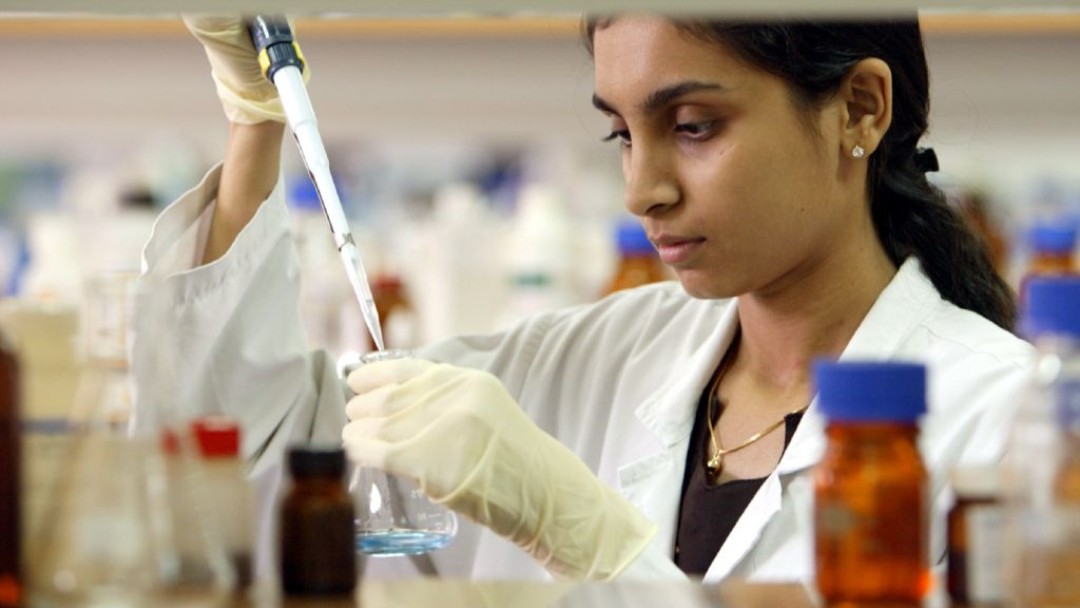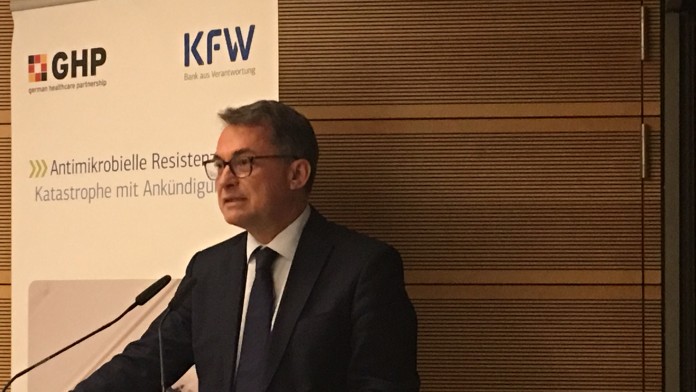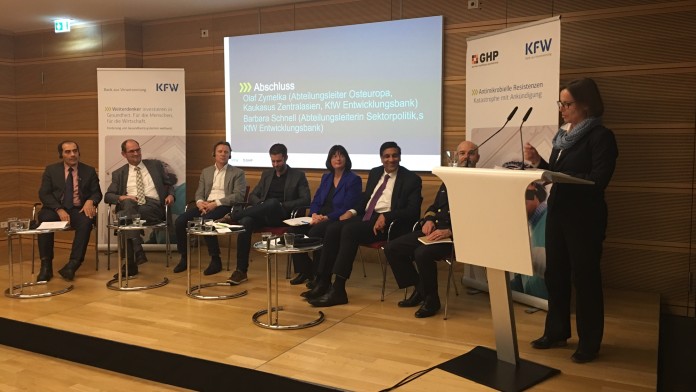News from 2018-12-03 / KfW Development Bank
A disaster with prior warning – resistant pathogens

Resistance to conventional medicine is on the rise everywhere in the world, but it poses particularly significant challenges for developing countries. The increasing resistance of microbial organisms such as bacteria and fungi has become a serious threat to global health. How to overcome this gradual threat and what can be done about it was the focus of an event organised by the German Healthcare Partnership (GHP) and KfW Development Bank in Berlin entitled "Antimikrobielle Resistenzen (AMR) – Katastrophe mit Ankündigung" (Antimicrobial Resistance (AMR) – A disaster with prior warning).
An estimated 700,000 people worldwide die as a result of AMR every year: deaths that could be prevented. This is particularly true in the case of antibiotic resistance. One of the reasons for this is the unchecked and excessive use of antibiotics in medicine, agriculture and hydroponics. It increases the resistance of pathogens and makes it more difficult to fight disease. This applies to everyday infections, but also to serious diseases such as tuberculosis, which was believed to have been almost completely eradicated and which today is once again among the deadliest infectious diseases.
These pathogens are a major public health problem in both poor and rich countries, and they do not stop at borders. But in developing countries, healthcare systems are often not robust enough to protect and treat people adequately.

Also an issue for KfW
"This is why AMR has now become an issue for development policy," said member of KfW Group's Executive Board Dr Joachim Nagel at the conference's opening ceremony, which was attended by over 100 guests from the political realm, academia, non-governmental organisations and the private sector. Nagel went on to say that the Ebola crisis in West Africa had clearly demonstrated what could be at stake when diseases become out of control. The three economies of the countries affected, Guinea, Liberia and Sierra Leone, lost an estimated 50 billion dollars in addition to many thousands of deaths.
Significant economic damage
The Parliamentary State Secretary to the Federal Ministry for Economic Cooperation and Development, Dr Maria Flachsbarth, also underscored the importance of the issue in her subsequent keynote address, in which she called the economic consequences enormous. "It is also a fact that resistance jeopardises the effectiveness of established standard therapies and drives up treatment costs."
Roland Göhde from the GHP also mentioned the major economic damage caused by AMR in his speech. Dr Tim Eckmann of the Robert Koch Institute quoted estimates that the economic consequences of AMR by 2050 would be "as bad as the financial crisis of 2008".

A disaster is heading our way
In the panel discussion that followed with six experts from the public and private sectors from Germany and abroad, it was agreed that a great deal of effort was still needed at various ends to get the problem under control. There is a particular need for information and education and a greater awareness that a disaster is slowly "heading our way". In addition, antibiotics need to be better administered, i.e. more regulation is required.
Better – international – monitoring and surveillance are also important. A solid database is needed to provide the basis for appropriate responses. Laboratories – both simple and highly specialised – are also essential. In many places, there are major gaps and a need for investment, and therefore also jobs for development finance.
More research, more innovation
Beyond high-tech, even minor changes can make a major contribution. A representative of Doctors without Borders reported that simple hand washing and disinfection significantly reduces the risk of infection with (multi-resistant) germs. Inadequate sanitary facilities and high prices for disinfectants in developing countries still often prevent this from happening.
The panel also called for incentives to stimulate more innovation and more investment in research because, ultimately, new antibiotics will also be needed. In order to achieve all of this, the panellists agreed that the solidarity of various stakeholders and, in particular, the contribution of the private sector, not least in developing countries, was needed.

Share page
To share the content of this page with your network, click on one of the icons below.
Note on data protection: When you share content, your personal data is transferred to the selected network.
Data protection
Alternatively, you can also copy the short link: https://www.kfw-entwicklungsbank.de/s/enzBWrMC.B5uA
Copy link Link copied